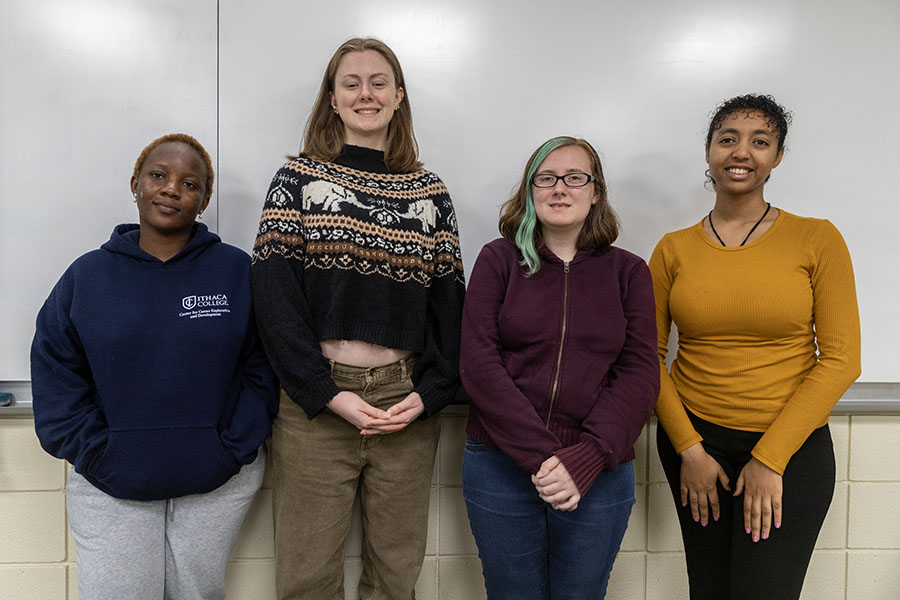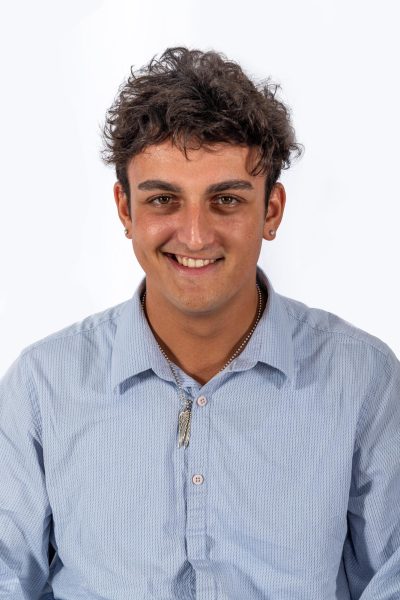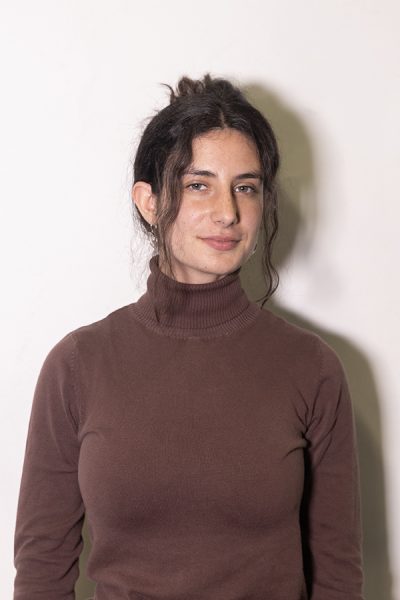Senior Surya Sharma, president of Girls Who Code at Ithaca College, is the web director for The Ithacan.
Girls Who Code at Ithaca College is a student-led computer science club that began in Fall 2024. It focuses on community and portfolio building for women and non-binary students in the field. Currently, there are 24 members, including five executive board members.
ICGWC was founded by senior Surya Sharma, a computer science major, who is also the club’s president. Girls Who Code is an international nonprofit organization that has set out to increase the number of women in computer science. It has a number of programs, including summer camps, college chapters and after-school programs at K-12 schools.
Ali Erkan, associate professor and chair of the Department of Computer Science and club adviser to ICGWC, said the initial goal was only to start a coding club, but with his encouragement, the club began to focus more on women in the field and partnered with Girls Who Code. The club is open to non-computer science majors as well.
“Computer science has historically been skewed in terms of gender,” Erkan said via email. “Female students [in my classes] have always been very successful, but they also occasionally express doubts about themselves. Having a space like this will be helpful for them.”
Erkan said that roughly seven years ago, there was a separate club dedicated to women in computer science that was not connected to Girls Who Code, but it disbanded because most of its leaders graduated.
Senior Simret Melak, a computer science major and the vice-president of ICGWC, said the goals of Girls Who Code are to build community and support among female computer science students, as well as help them build their skills and learn more about fields within computer science.
“[GWC has] connections with a lot of companies,” Melak said. “Last week, there was a hiring summit organized by Girls Who Code … so you can create networking and connections through that.”
Senior Kat Freeman, a computer science major and the marketing manager of ICGWC, said she believes the club will help its members get comfortable and prepare for the next steps in their programming careers.
Senior Cassandra Raineult, a computer science major and financial manager of ICGWC, said the members shared similar experiences and stories in their first meeting. Raineault said many members expressed feelings of inadequacy and isolation, both of which the club seeks to address.
“It’s good for us to come together and be able to share our problems with other women or non-binary [people] … as minorities in the field,” Raineault said.
Raineault said that when it comes to opportunities outside the major, it is difficult not to compare themselves to others.
“I think [the major] is fairly collaborative and cooperative, but when it comes to opportunities, it can feel like other people are doing better than you and will have better opportunities than you,” Raineault said.
Only around 21.3% of bachelor’s degrees in computer science are earned by women. A similar trend is reflected in the Department of Computer Science at Ithaca College, where there are 43 men in the computer science BA compared to nine women, and 31 men in the computer science BS compared to 14 women, according to Fall 2024 data from the Office of Analytics and Institutional research. There are also no female-identifying professors in the department.
In May 2024, a major figure in the department, Sharon Stansfield, retired after 24 years as an associate professor of computer science. Stansfield was the only female-identifying computer science professor at that time.
Also the co-founder and vice president of Assistance in Motion, Stansfield said unequal opportunities and fitting in among male colleagues are still major obstacles for women in computer science.
“There are still attitudes out there that women don’t belong in [science] fields and that they can’t do that kind of work,” Stansfield said. “Computer science particularly tends to sometimes draw in people like that.”
Senior Vanessa Mpofu, a computer science major and creative manager of ICGWC, said the lack of female figures to look up to and get advice from makes being a computer science major difficult. Mpofu said another goal for the club is getting older students to mentor and support younger students. She said because there is a lack of female professors in the department, she wanted to surround herself with people who can relate to the struggles of being a woman in such a male-dominant field.
“It’s [like] a blurry road,” Mpofu said. “When you get to the end of it … you’re now trying to figure out what’s next. If we had a few female professors, they can relate to our struggles because they’ve been through the path that we’re taking.”
Freeman said the purpose of the group isn’t to divide from or unite against the male-dominant space, but to make a supportive space for gender minorities in the field.
“One of the big ideas is … to kind of do away with that idea that we aren’t good enough because we see a lot of our male counterparts surpassing us in the classroom or in the job field,” Freeman said. “I think having this environment is really validating to hear each other’s experiences.”
Stansfield said women in computer science often struggle with impostor syndrome, and part of that belief begins in grade school, where math and science are often thought of as masculine fields of study.
“To get through, you need to believe in yourself, and you need other people to believe in you, and sometimes, even when the faculty believe in you, it’s hard to believe they do,” Stansfield said. “What they can do for each other is … say you can do this. I’ve seen you, I know you’re smart. You know what you’re doing.”
Melak said the club wants to host a showcase toward the end of the semester where members can show off their projects and what they have been working on individually and in collaboration with each other. Melak also planned for bi-weekly programming workshops where the members can work on their skills.
“I think that will help equip us with the skills we need before we graduate,” Melak said.
















